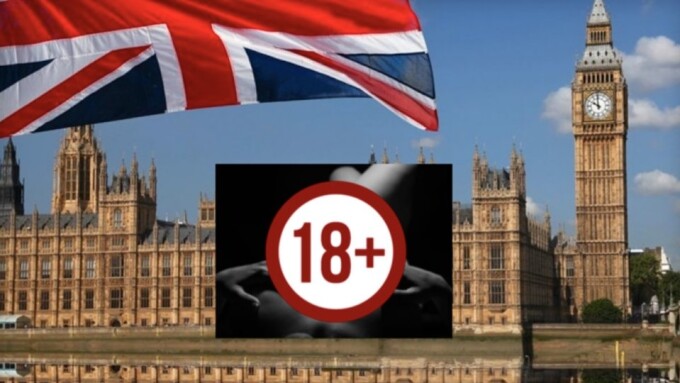LONDON — In a surprising move, the U.K. government has backtracked on its efforts to implement the controversial Age Verification scheme that would have compelled anyone who accessed adult websites in the realm to officially verify they were not minors.
Nicky Morgan, Secretary of State for the Department for Digital, Culture, Media and Sport, released a statement today concerning "Online Harms," in which it is informed that the government "has concluded that this objective of coherence will be best achieved through our wider online harms proposals and, as a consequence, will not be commencing Part 3 of the Digital Economy Act 2017 concerning age verification for online pornography."
"After several delays and controversies, plans for a UK ‘porn block’ have been scrapped," BBC Senior Journalist Thomas Fabbri, who covers the adult industry and sex workers' issues, told XBIZ . "However, the government remains committed to ‘protecting children online’ and adopting ‘innovative solutions’ in the future – perhaps some that cover social media platforms too. Today’s news is a victory for those who have opposed these plans for years, in hope that a post-Brexit future won’t bring any bad surprise."
Last month, at XBIZ Berlin, British Board of Film Classification (BBFC) Policy Director Murray Perkins gave an update on the rollout of mandatory age verification in the U.K.
“The introduction of age verification in the U.K. has been delayed,” Perkins told XBIZ at the time, “but the U.K. government remains committed to it and it’s wise to ensure that the industry is prepared for when the law becomes live.”
Today's news shows a 180-degree change in position regarding Age Verification by the embattlenned Boris Johnson government.
This is the full statement published by the official UK parliamentary business website:
The Secretary of State for the Department for Digital, Culture, Media and Sport (Nicky Morgan) has today made the following Written Ministerial Statement:
Protecting children is at the heart of our online harms agenda and is key to wider government priorities. Going online can be beneficial for children, who use the internet for connecting with peers, to access educational resources and for entertainment. However, the government is concerned about the prevalence of adult content online, which is easily accessible to children, and believes it is vital that children are protected from accessing inappropriate, harmful content.
The government published the Online Harms White Paper in April this year. It proposed the establishment of a duty of care on companies to improve online safety, overseen by an independent regulator with strong enforcement powers to deal with non-compliance. Since the White Paper’s publication, the government’s proposals have continued to develop at pace. The government announced as part of the Queen’s Speech that we will publish draft legislation for pre-legislative scrutiny. It is important that our policy aims and our overall policy on protecting children from online harms are developed coherently in view of these developments with the aim of bringing forward the most comprehensive approach possible to protecting children.
The government has concluded that this objective of coherence will be best achieved through our wider online harms proposals and, as a consequence, will not be commencing Part 3 of the Digital Economy Act 2017 concerning age verification for online pornography. The Digital Economy Act objectives will therefore be delivered through our proposed online harms regulatory regime. This course of action will give the regulator discretion on the most effective means for companies to meet their duty of care. As currently drafted, the Digital Economy Act does not cover social media platforms.
The government’s commitment to protecting children online is unwavering. Adult content is too easily accessed online and more needs to be done to protect children from harm. We want to deliver the most comprehensive approach to keeping children safe online and recognised in the Online Harms White Paper the role that technology can play in keeping all users, particularly children, safe. We are committed to the U.K. becoming a world-leader in the development of online safety technology and to ensure companies of all sizes have access to, and adopt, innovative solutions to improve the safety of their users. This includes age verification tools and we expect them to continue to play a key role in protecting children online.
We will continue to engage with members of Parliament on the provisions of the online harms regime to ensure the most comprehensive online harms proposals which deliver on the objectives of the Digital Economy Act.
This is breaking news. XBIZ will update this article as more information becomes available.







